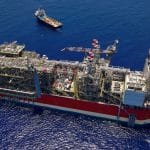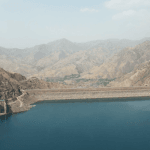US liquefied natural gas, or LNG, exports reportedly hit monthly and annual record highs in December, positioning the United States to potentially become the largest exporter of LNG in 2023 just ahead of Qatar and Australia, which will have significant implications for the gas market and the European Union’s energy security, however the final numbers turn out.
Russia, for its part, plans to increase LNG exports to offset the decline in pipeline gas exports to Europe but Arctic LNG 2, which is controlled by Russia’s largest LNG producer Novatek, reportedly faces delay due to Western sanctions.
Increased American LNG exports contribute to the diversification of global gas supply sources, Tatiana Mitrova, a research fellow at Columbia University’s Center on Global Energy Policy, told NE Global on January 8, adding that this could help mitigate potential disruptions in the global gas market due to geopolitical or supply-related issues in other major LNG-producing countries like Qatar and Australia. This of course has always been Washington’s intention, to the extent the US government had direct influence on private sector producers and their export plans.
“It also exerts competitive pressure on other LNG exporters to remain competitive in terms of pricing and quality. At the same time there is a threat of supply disruption due to the hurricane season in the Gulf of Mexico, which could potentially increase the vulnerability of the global LNG market,” Mitrova said.
She argued that the EU’s energy security is enhanced by access to additional American LNG supplies, especially after the dramatic decrease in Russian pipeline gas deliveries.
“Russian pipeline gas supplies were not that cheap even before the war. Current gas prices in the EU reflect the fragile balance between LNG availability, domestic demand, which is a function of winter weather, and gas in storage,” she said.
Asian gas demand in 2024 remains a question
Mitrova noted that a lot will depend on the Asian gas demand and China’s gas demand in particular. “If there is no severe cold weather neither in Europe nor in Asia, gas prices should remain below the 2022 record level. But we have to keep in mind that the potential for shortages and higher gas prices during the winter depends on several factors, including weather conditions, supply disruptions, and demand fluctuations. In this respect the availability of additional US LNG exports can help alleviate potential shortages by providing additional supply during peak demand periods, which can help stabilize prices,” Mitrova said.
Mike Fulwood, a Senior Research Fellow at the Oxford Institute for Energy Studies in London, told NE Global on January 5 that the increase in US LNG exports is just one aspect of the global supply situation. “There is one price for gas in Europe, effectively the Title Transfer Facility, with other hubs and locations at a differential,” he said, referring to the Amsterdam-based main reference virtual market for gas trading in Europe.
“Because US LNG is ‘higher’ cost than Russian pipeline gas that doesn’t impact the price of gas which is determined in the market. What has driven prices to record highs in 2022 was the abrupt loss of an enormous volume of supply from Russia and the market responded with loss of demand, diversions of LNG, and high prices,” Fulwood said.
According to the Oxford energy expert, the EU can always attract volume as it appears to be prepared to pay high prices which have nothing to do with the cost of the gas or LNG.
“This winter Europe is well placed with lots of gas in storage, so we aren’t going to go short, and prices have come off a lot. Things could get tighter in the summer depending on how much gas Europe needs to fill storage,” he said.
Russia’s Arctic-2 LNG project faces delays
Regarding Russia’s efforts to increase its share of the global LNG market, Mitrova said that Russian companies are working hard to increase their output, but there are some significant challenges.
“First of all, the recent sanctions on the main commercial entities engaged in Arctic LNG-2 sales lead already to force-majeure announcements by Novatek while the foreign shareholders suspended participation in the project, renouncing their responsibilities for financing and offtake contracts,” Mitrova said.
Mitrova argued that sanctions-driven restrictions on Russian LNG can indeed have a more significant impact than on oil due to the limited availability of the tanker fleet and transshipment facilities. This constraint can limit Russia’s ability to expand its LNG exports quickly, she added.
“In the longer term, Russia is facing challenges in accessing LNG technology and getting new liquefaction equipment and new LNG tankers due to sanctions. This limitation could impede its ability to complete the projects under construction in time, though looking at its efforts for localization I expect that the key project will be completed but probably with some delays,” Mitrova said.
Fulwood agreed, arguing that the restrictions on Arctic 2 and the subsequent force majeure by Novatek and separately the off-takers seem likely to simply reduce the output rather than stop the project completely. “That will tighten the market a little but not that material,” he said.
A quick review of Western, Ukraine-war-related sanctions, will reveal that restrictions both on gas purchase contracts and new technology supply to Moscow are core elements of the overall sanctions program, which appear to be having their intended effects.







